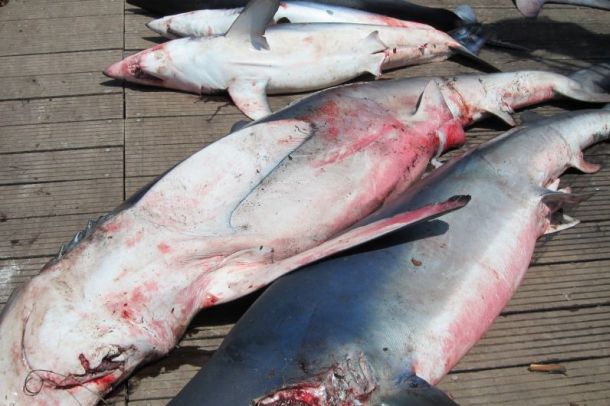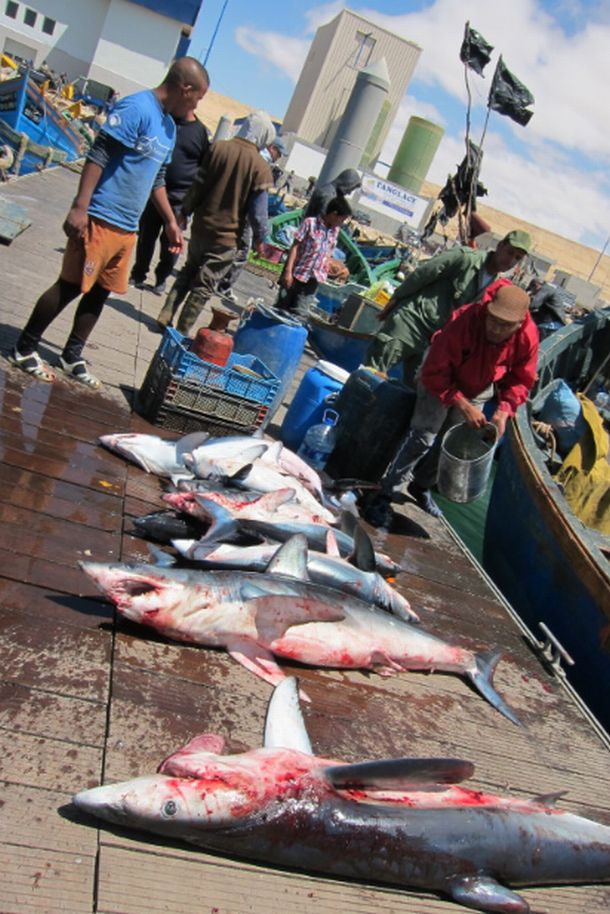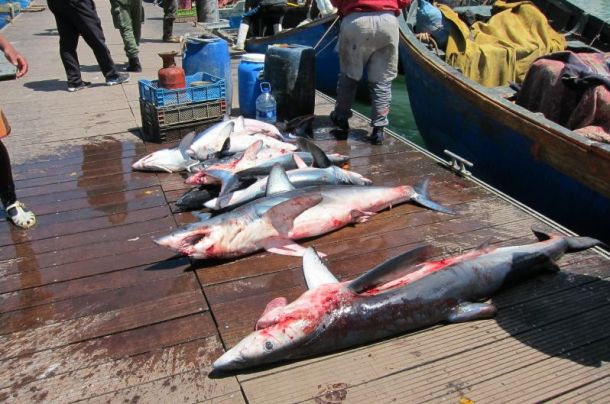
Pictures taken in Boujdour harbour, occupied Western Sahara, demonstrate that vulnerable shark species are still being caught by the Moroccan fleet in the territory - in spite of international rules and regulations calling for their protection.
The photos in this article were taken in Boujdour harbour, in April 2014.
The shark in the front is a blue shark (Prionace glauca), while the others are Shortfin Makos (Isurus oxyrinchus). The International Union for Conservation of Nature (IUCN) considers both species to be vulnerable. The Blue Shark is listed as "near threatened" and the Shortfin Mako as "vulnerable".
The sharks seem to have been landed by local fishermen - which in Western Sahara would mean by Moroccan fishermen who have settled permanently or seasonally in the occupied territory. The catch includes young animals, which have never reproduced before. That makes this kind of fishery highly destructive and unsustainable.
In 2011, Western Sahara Resource Watch had already written about sharks being in danger of extinction in Western Sahara. That was one of the many disturbing conclusions of the 2011 independent post-evaluation report on the EU's previous fish deal with Morocco, voted down by the European Parliament in December 2011.
The report commented how the Moroccan fleet has long-time held a special interest for sharks: up to 4.000 tonnes are landed each year to accommodate the demands for shark of the Asian markets. Particularly the deep sea species are targeted, as their large liver makes them interesting for the cosmetic and pharmaceutical industry.
The Moroccan government issued a set of guidelines in 2009 to reduce the fishing impact on sharks, but there is no information available as to whether and how these measures have been implemented.
With regard to the shark population, it seems that not much has changed. EU fishing in Morocco and Western Sahara is expected to be resumed in the coming weeks, posing a further threat to an already endangered species.



Morocco plans massive AI center in occupied Western Sahara
A 500 MW hyperscale data center for Artificial Intelligence is being envisaged in the occupied territory.
Quality Austria travelled to occupied territory
Representatives of the certification body Quality Austria inspected Moroccan fish exporting companies in occupied Western Sahara. Did the company know which country they had visited?
Denmark refused to advise company in occupied Western Sahara
When the Danish renewable‑energy firm GreenGo Energy requested government guidance for its planned activities in Western Sahara, the Danish embassy declined.
Emirati wind farm planned in occupied Western Sahara
A company from the UAE is set to develop a new controversial wind farm in occupied Western Sahara later this year.



